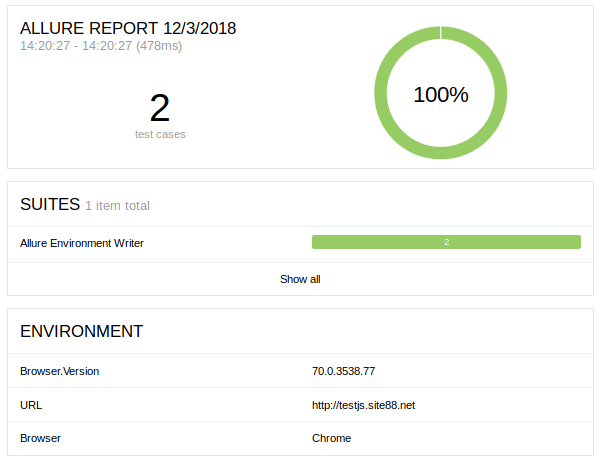Java library which allows to write environment.xml file into allure-results directory. Currently, the library supports Allure report with either JUnit or TestNG. It would allow you:
- Easily write the environment.xml file to allure-results directory in any stage of your test.
- Flexible path of 'allure-results' directory.
- Use ImmutableMap to create immutable set of values for the environment to contain.
import static com.github.automatedowl.tools.AllureEnvironmentWriter.allureEnvironmentWriter;
public class SomeTests {
@BeforeSuite
void setAllureEnvironment() {
allureEnvironmentWriter(
ImmutableMap.<String, String>builder()
.put("Browser", "Chrome")
.put("Browser.Version", "70.0.3538.77")
.put("URL", "http://testjs.site88.net")
.build());
}
@Test
void sanityOneTest() {
Assert.assertTrue(true);
}
@Test
void sanityTwoTest() {
Assert.assertTrue(true);
}
}
import static com.github.automatedowl.tools.AllureEnvironmentWriter.allureEnvironmentWriter;
public class SomeTests {
@BeforeSuite
void setAllureEnvironment() {
allureEnvironmentWriter(
ImmutableMap.<String, String>builder()
.put("Browser", "Chrome")
.put("Browser.Version", "70.0.3538.77")
.put("URL", "http://testjs.site88.net")
.build(), System.getProperty("user.dir")
+ "/allure-results/");
}
@Test
void someTest() {
Assert.assertTrue(true);
}
}
<dependency>
<groupId>com.github.automatedowl</groupId>
<artifactId>allure-environment-writer</artifactId>
<version>1.0.0</version>
</dependency>
